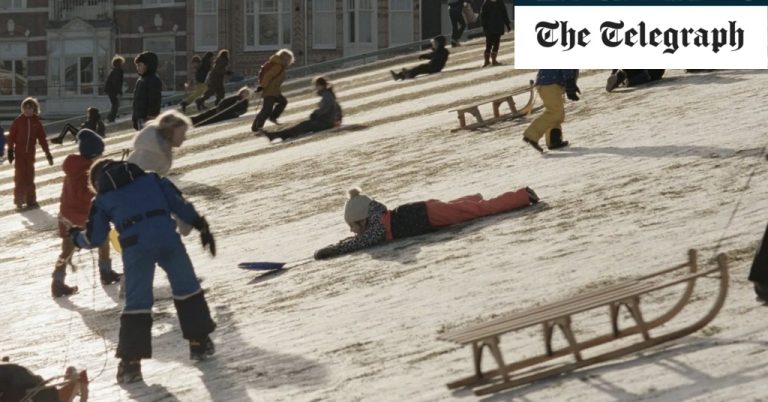The city of Amsterdam is the subject of this immense new wartime documentary from Britain’s Steve McQueen, and we find it occupied in two different ways. The first is in the military sense: in May 1940, the German army seized control of its streets, corralled its Jewish residents into restricted areas, robbed them of their jobs and belongings, and later deported them by train to the death camps.
Meanwhile in the present, the place still flocks with the ghosts of that hellish time, whether its current residents can see them or not. McQueen’s film shows us a model European capital in all its cosmopolitan bustle and warmth – and forces us to reckon with the fact that within living memory, the most appalling crimes were being carried out in the same streets, parks and plazas friends and families now gather to sledge, skate, picnic, laugh, protest, dance and drink.
To watch Occupied City is to be wrenched back and forth between these two polar-opposite realities, struggle to comprehend how they can be one and the same place – and yet also notice strange and revealing points of overlap, where the psychogeography of both eras momentarily aligns.
McQueen does it like this. Visually, the film is made up of vignettes of contemporary Amsterdam life, stretching from the start of the pandemic to the present. Aurally, meanwhile, a voiceover performed by Melanie Hyams describes how each location depicted was used during the Second World War: as a place where a certain Jewish family hid until they were abducted or murdered by the Nazis, or where a resistance movement was crushed, or where dissidents were massacred.
For the most part, sound and image are irreconcilable, so you find yourself either listening in horror or watching with pleasure, only for the spell to be broken by some eye or ear-catching detail in the other temporal strand. Occasionally, a detail will bridge the gap between the two, in defiance of progress: the red light district is still the red light district, for instance.
